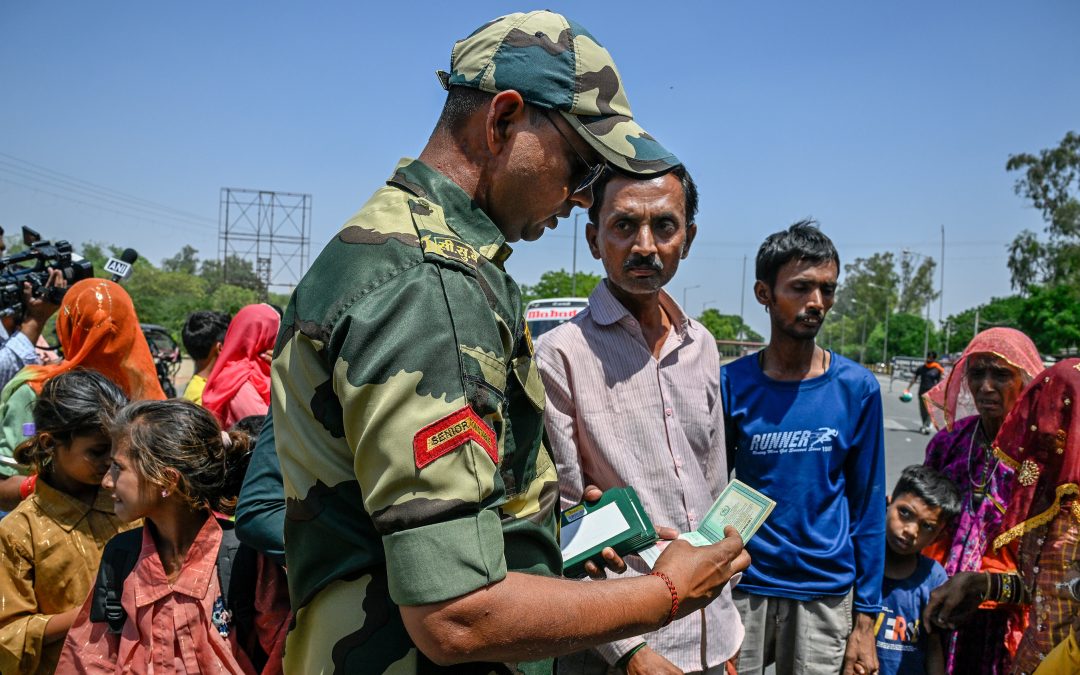As the repercussions of a terrorist attack unfold, they often extend far beyond the physical damage caused. The aftereffects can give rise to scenes of profound pain and suffering, as innocent families with mixed citizenship are abruptly torn apart at the borders of their respective countries. This heart-wrenching reality forces us to reassess the significance of borders, citizenship, and the fundamental values we hold as a global society.
The Impact of Terrorism on Borders
Terrorism has long been a harrowing menace that threatens the safety and security of nations worldwide. Beyond the immediate devastation it wreaks, terrorism often triggers an intensified focus on securing borders in an attempt to prevent further attacks and protect citizens. While this response may seem natural at first, it can inadvertently lead to grave consequences for individuals and families caught in the crosshairs.
One of the most distressing outcomes of heightened border security is the division of families with mixed citizenship. Suddenly, what was once a shared existence, intertwined with love, support, and shared dreams, is abruptly severed. The pain and anguish that ensue are immeasurable, as loved ones who relied on the strength of their familial bond are forcibly torn apart.
Reevaluating the Significance of Borders
In the face of such anguish, it becomes imperative to reevaluate the significance we place on borders. While borders can provide a sense of security and identity, they also have the potential to create division and perpetuate suffering in situations like this. We must ask ourselves if the concept of borders, as we understand it, is truly compatible with our universal aspirations of compassion, unity, and the pursuit of happiness.
Additionally, we must carefully consider the values and ideals that truly define a nation. Citizenship, at its core, is a legal and bureaucratic construct that determines an individual’s rights and responsibilities within a specific geographic location. However, we must not let this construct blind us to the essential humanity that exists within every person, regardless of their citizenship status or country of origin. The bonds of love, family, and empathy should hold equal weight in our considerations of who belongs and who does not.
Rethinking Solutions: A Call for Innovation
When confronted with the painful scenes and consequences of families being torn apart at borders, we are called upon to seek innovative solutions that reconcile the need for security with the preservation of fundamental human rights. While this is undoubtedly a complex challenge, it is not insurmountable.
One possible approach could involve the implementation of advanced technology that enhances security measures while minimizing the disruption faced by families. Developments in biometric identification, advanced screening methods, and secure data sharing could potentially offer ways to maintain security without resorting to physical separation.
Furthermore, international agreements and policies could be renegotiated to prioritize the humane treatment and reunification of families affected by border policies. By fostering collaboration and empathy among nations, we can work towards a future in which borders are not barriers to love and unity.
In Conclusion
The painful scenes that unfold at borders as a result of terrorist attacks are a stark reminder of the repercussions that extend far beyond physical damage. They highlight the need to reevaluate the significance of borders, emphasizing our shared humanity over mere citizenship status. By embracing innovative solutions and rethinking our approaches, we can strive towards a future where security and compassion coexist harmoniously, ensuring that families are never torn apart at the borders again.
